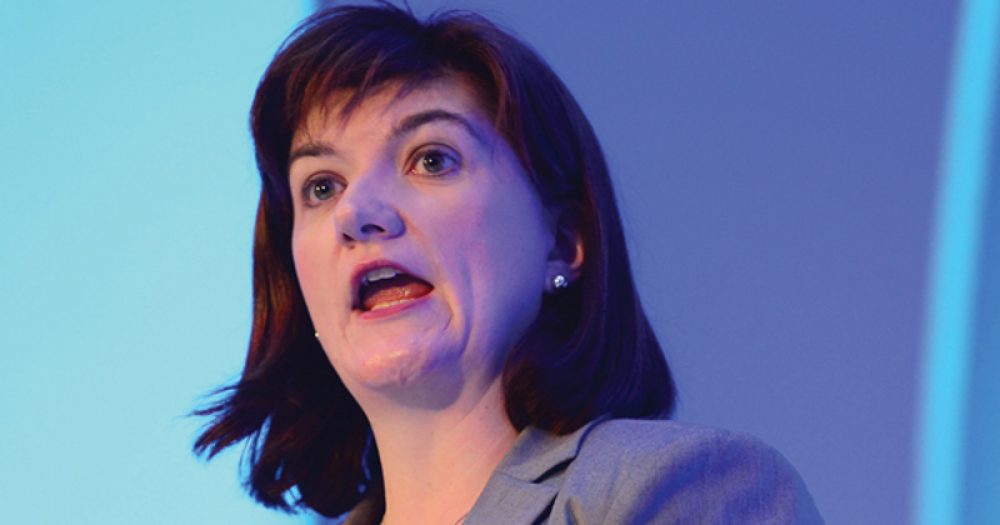Teachers’ pay scales will shift by just 1 per cent from September, but government advisers have warned of the need for a “significantly higher” rise before 2020.
Nicky Morgan, the education secretary, has announced that she intends to accept a recommendation from the School Teachers’ Review Body (STRB) that the lower and upper ends of teacher pay scales and classroom teacher allowances should rise by 1 per cent, in line with the government’s cap on public sector pay.
The STRB stopped short of recommending an increase larger than 1 per cent, despite fears over the impact of pay restraint on teacher recruitment and retention, because of concerns about the “significant risk” such a rise could pose to schools which are still coming to terms with new flexibilities around pay.
But it has told the government it expects an uplift “significantly higher than 1 per cent” will be needed in the course of this parliament “to ensure the teacher pay framework remains competitive”.
The STRB said a “range of factors” were contributing to problems faced by schools, including a “continuing decline” in teachers’ earnings compared to other occupations and the “increasing availability of more rewarding career opportunities for new graduates”.
Other factors include “widespread concerns about workload” among those already in the profession, the body said, adding that public perceptions of the status of the profession were also important, with pay an “important signal of how society values teachers”.
But the STRB warned that schools faced with raising pay scales by more than 1 per cent without additional funding would need to “manage their budgets to balance competing pressures”, and said evidence gathered by the body suggested many schools were “not yet confident” using new pay flexibilities.
“In particular, it is clear schools would struggle to put in place appropriate pay policies in time to make differentiated individual awards this autumn,” the body said.
Kevin Courtney, acting general secretary of the National Union of Teachers, has accused Morgan of “trying to bury her head in the sand” after her statement to parliament on the report made no mention of the STRB’s call for bigger rises in the future.
“The NUT is hugely disappointed that the STRB decided to accept the 1 per cent pay limit this year but strongly supports the STRB’s view that the government must urgently find more money for schools to allow them to employ more and better-paid teachers,” he said.
Headteachers have also expressed their concerns. Malcolm Trobe, the acting general secretary of the Association of School and College Leaders, criticised the delay to the release of the report, adding that schools had been left in the dark for “far too long”.
“Even more disappointing, however, is that these pay awards are once again limited to an uplift of 1 per cent when we are in the midst of a teacher recruitment crisis. Furthermore, schools are expected to fund these awards without any additional funding from the government at a time when budgets are under severe strain because of real-terms reductions.”
A government spokesperson said: “We have given schools unprecedented freedoms over staff pay so they can reward the most experienced teachers and attract the brightest and best.
“The 2016 pay deal includes a 1 per cent uplift to pay ranges and allowances and highlights schools’ flexibilities around recruitment and retention including offering salary advances for rental deposits.”








If only we’d just saved £350 million per week by leaving the EU, eh?
It is hard to understand why teachers in the UK seem to only get very small pay rises when other countries pay their teachers a much better salary.There are many examples of countries who do this because they have understood that to attract the best,you have to pay the best.The government will continue to have a lot of discontent within the profession because teachers see what other countries are paying in terms of salary.Again, it is no wonder teachers are leaving and going abroad and who can blame them!!